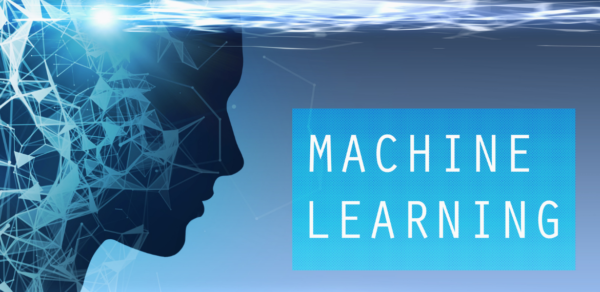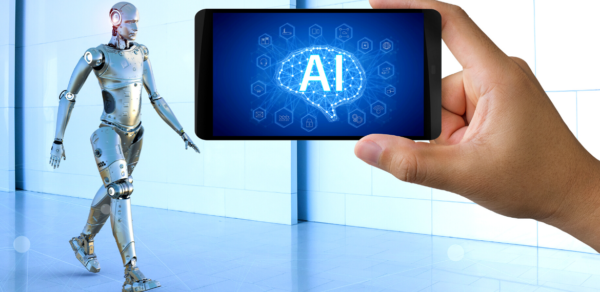How can AI impact software testing? Though software testing through manual efforts has its own value; the introduction of Artificial Intelligence has simplified the process giving ease to a process that was time-consuming.
Since the concept of artificial super-intelligence is far away and AI has made the testing procedures much quicker, the use of AI can enhance the entire testing environment. Moreover, this will lead to an all-new redefined AI testing environment by giving more skill to the testers and adding more value to the business growth.
AI Integration & Testing: The Benefits
- Accuracy: Unlike traditional testing practices, AI has the potential to work on data analysis. Since the most advanced and experienced QA experts have the chance of making mistakes, overlooking certain implications. However, such issues are picked very quickly by the customers or end-users, leading to a drop in brand value and market reputation.
However, the use of AI and machine learning tools allows systems to work on source analysis and use that knowledge to test future projects. This helps the user to cultivate more precise results while eliminating any scope for error. Moreover, AI also helps to run the tests more quickly and locate any defects in the system when QA testers are loaded with heaps of data volumes to work.
- Redefining Tester’s Role: AI testing is all about making the testing process more convenient. AI not only takes of an entire load of execution, but it also helps QA engineers to build skills and diversify competencies through business intelligence, algorithmic analysis, neuro-linguistic programming, and other AI-based test approaches.
It is necessary for QA testers to work with modern and more efficient technologies since the AI testing practices have matured over the course of time. However, the situation could be improved when QA and testing companies invest in skill development programs aligning with the three emerging roles for QA engineers suggested by World Quality Report:

- AI Test Experts: A combination of traditional testing skills and machine learning algorithms that focuses on learning paradigms related to NLP and math models.
- AI QA strategists: These are the experts with a grip on data flow, robotics, and math optimization, making them work on AI-based quality assurance throughout the business or product lifecycle.
- Data Scientists: QA experts working under this role had to work on filtering data, work over statistics, and build models for QA strategy. These experts in the near future could make test automation teams and take the supervisory role to execute tests.
It is predicted that 70 percent of the testing tasks will be automated, while 30 percent of these will be tested through manual operations. Though AI might be considered good for repetitive testing only, the QA experts working as data scientists could take control of QA objectives redefining the way AI is used for testing.
- Predictive Analysis: As per the World Quality Report, 64 percent of Companies will start utilizing AI to improve customer processes. Since there has been an ever-growing demand for growth in the IT sector, over-taking competition needs companies to take benefit of predictive analytics. Moreover, the use of AI and ML technology for customer data analysis could help business firms to define their preferences for products in the future.
Bringing ML into Testing
Since machine learning is a technology that follows pattern recognition, ML could be put to analyze information and draw predictive patterns for automation testing. Since ML is free from the user interface, automated QA can be easily implemented as a back-end process:

- UI Tests: ML can help QA teams to work on improving the ultimate user experience associated with applications, software, or websites. Since most modern apps share a similarity in their design and functionality, ML can be used to simplify working on QA operations. For example, most eCommerce websites have a similar pattern for display and navigation with functionality requirements such as filters, payment options, etc.
Using Machine Learning and AI, the bots could be trained for running a similar type of navigation and functionality test on the software using visual validation. However, the task may be worked by the QA engineers to create machine learning tests that find visual defects.
- APIs: ML testing can also be implemented to work on API layer check-ups. The algorithms could be trained to take over test scripts, making the tester get over all the API calls.
- Strategy-orientation: Most of the time, QA engineers run test suites to rectify small changes made to the code. However, the use of ML tools could allow shortening the length of tests while looking for code modifications that are most relevant. Also, the technology can help to analyze any vulnerabilities in the software extend the coverage of the tests.
Measuring The Challenges: The Likeliness for Irrelevance AI May Bring to Testing
Even though the entire IT industry has built a familiarity with AI technologies, there are still many organizations that see AI as a futuristic concept. Therefore, we have some prominent challenges associated with the implementation of AI for software testing practices. These could be listed as:
- Growing Big Data Needs: To process unstructured data you need to have the best QA resources available. Moreover, working on heavy data analysis requires investment in robotics and cognitive technologies that can help improve the process.
- AI Integration: For all the companies that are failing to define the potential improvement areas in business that can be uplifted through AI. QA technologies empowered through AI can help simplify the approach. However, such implementations need QA teams to create expertise on using AI in the business lifecycle.
- Inefficient Knowledge: One of the most significant challenges that QA companies are likely to face with AI implementation for software testing is building the right knowledge to leverage test skills. Though it is not sure when this gap could be bridged, investing in skill growth and appointing qualified professionals could help upgrade the AI game in the world of software testing.
Concluding it all, practice and learning are the only way to create intelligent QA. Moreover, overcoming the knowledge gap for AI could help the IT world yield extensive long-term benefits that can help build technologies of the future.

All in all, the use of artificial intelligence technology could help lead the pathway to advanced software testing practices transforming the present work practices of the QA testers. Also, it could help to overcome any chances of irrelevance that testing companies may develop while implementing AI into operations.
Check out all the software testing webinars and eBooks here on EuroSTARHuddle.com
